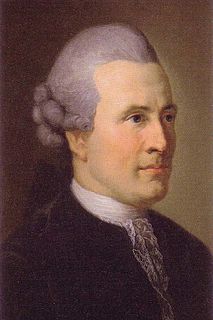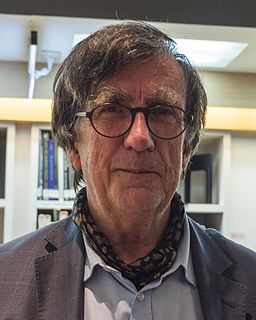A Quote by Bernard Bailyn
The ideas that the colonists put forward, rather than creating a new condition of fact, expressed one that has long existed; they articulated and in so doing generalized, systematized, gave moral sanction to what had emerged haphazardly, incompletely and insensibly, from the chaotic factionalism of colonial politics.
Related Quotes
Whatever the country, capitalist or socialist, man was everywhere crushed by technology, made a stranger to his own work, imprisoned, forced into stupidity. The evil all arose from the fact that he had increased his needs rather than limited them; . . . As long as fresh needs continued to be created, so new frustrations would come into being. When had the decline begun? The day knowledge was preferred to wisdom and mere usefulness to beauty. . . . Only a moral revolution - not a social or political revolution - only a moral revolution would lead man back to his lost truth.
I think that the sheer fact that music can raise certain questions or put topics on the agenda has in itself already an effect. Just like any other art of cultural expression can do that - books, films, photos, painting - it can bring people together who share certain ideals, who don't find their ideas expressed properly, or even expressed at all, in the mainstream media.
The car shot forward straight into the circle of light, and suddenly Arthur had a fairly clear idea of what infinity looked like. It wasn’t infinity in fact. Infinity itself looks flat and uninteresting. Looking up into the night sky is looking into infinity—distance is incomprehensible and therefore meaningless. The chamber into which the aircar emerged was anything but infinite, it was just very very very big, so big that it gave the impression of infinity far better than infinity itself.
By consequence I hold that no one ever did, or can do, anything for "society."... Comte invented the term altruism as an antonym for egoism, and it found its way at once into everyone's mouth, although it is utterly devoid of meaning, since it points to nothing that ever existed in mankind; This hybrid or rather this degenerate form of hedonism served powerfully to invest collectivism's principles with a specious moral sanction, and collectivists naturally made the most of it.
Science does not enter a chaotic society to put order into it anymore, to simplify its composition, and to put an end to controversies. It does enter it, but to add new uncertain ingredients... to all the other ingredients that make up the collective experiments. When scientists add their findings to the mix, they do not put an end to politics; they add new ingredients to the collective process.








































